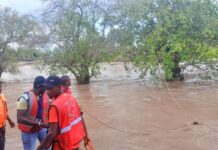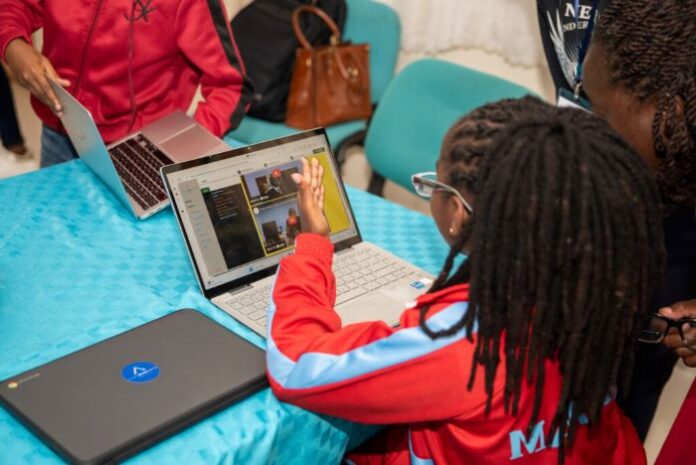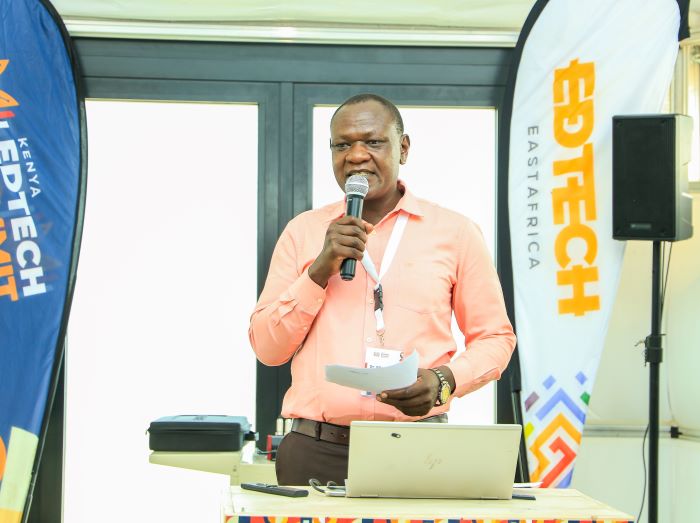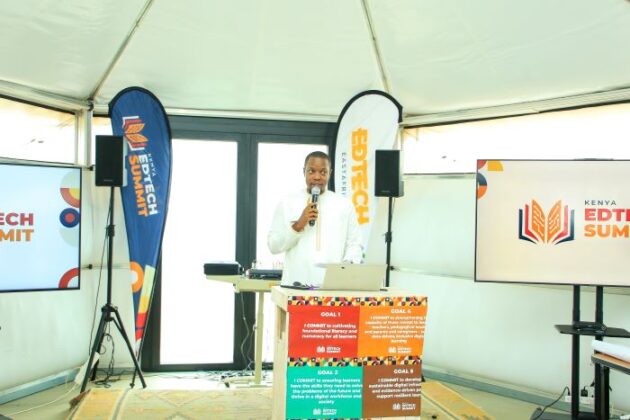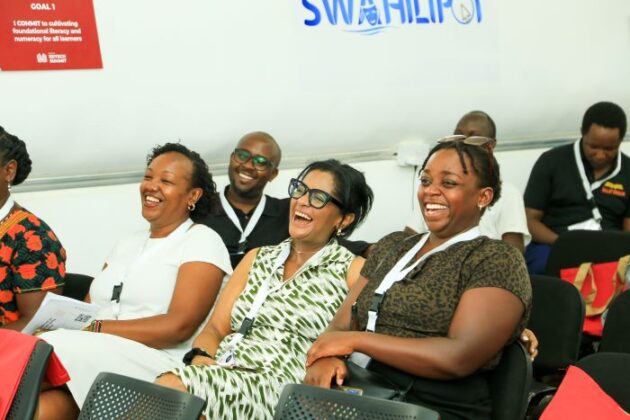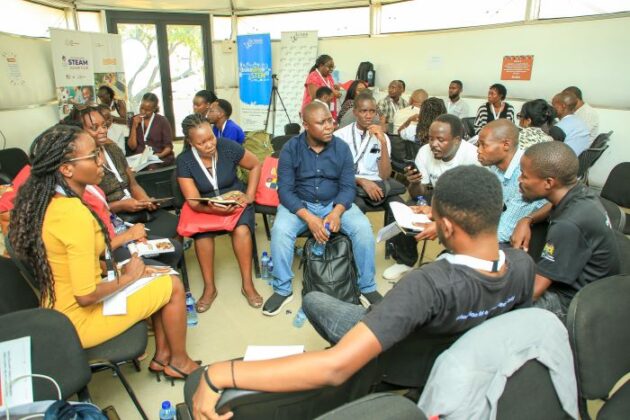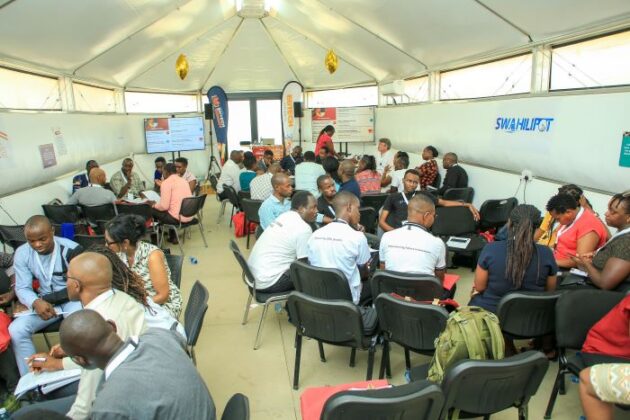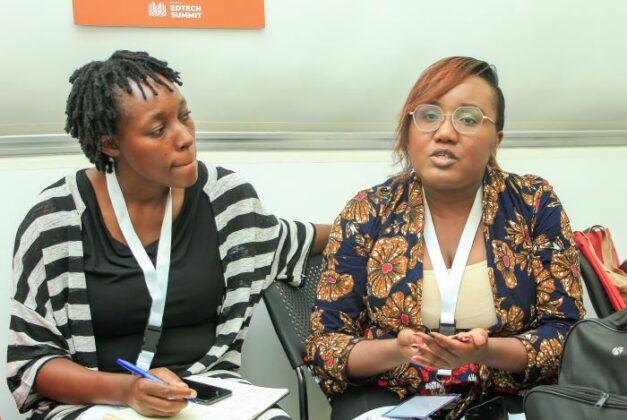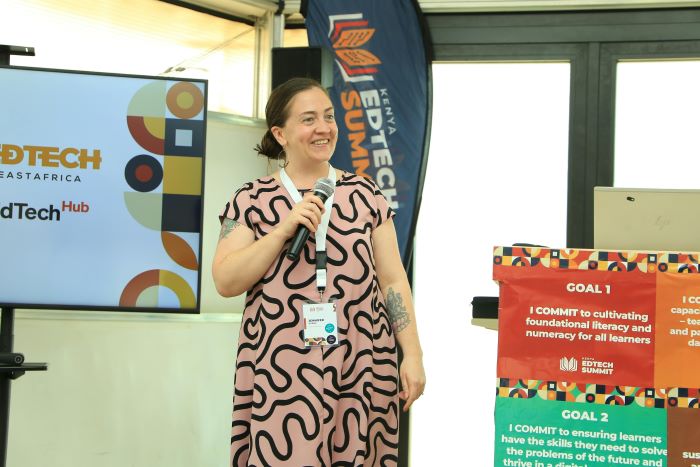As the world continues to grow digitally, incorporating technology in the classroom has become not just a want but a need.
With this in mind, stakeholders are coming together to ensure that learners in Kenya get digital skills in schools, that will help them navigate their way in this digital era.
Speaking while officially opening the Pwani EdTech Summit held in Mombasa on the 20th of February 2024, Dr. Eng. Robert Wamalwa said the intersection of education and technology has become a crucible of progress, shaping the way we learn, teach, and ultimately the future of the society.
“Today marks the launch of an extraordinary gathering, a convergence of brilliant minds, and cutting-edge ideas, all fueled by a shared commitment to revolutionize the way we approach education,” said Dr. Eng. Wamalwa, a member of the Presidential Working Party on Education Reforms (PWPER).
Looking at the 21st-century learner, digital literacy is one of the most important competencies they need to interact with the world and for them to benefit from some of the opportunities presented by education technology.
Speaking during the event, Lucy Maina, KPlay Project Director, said integrating technology in the classroom not only allows learners to understand better what they are being taught but also facilitates learning during the holidays.
“They are looking at what they are learning, like what is a breathing system, how it works or whatever other things. It helps them understand what is being taught, they can retain it and those who like audio-visual things can listen and see what is happening in the classroom,” said Lucy Maina.
The Ministry of Education through the Kenya Institute of Curriculum Development has included digital literacy in the Competency-Based Curriculum by including creative coding content in textbooks (for grades four, five, and six, and Junior Secondary School).
However, to facilitate digital learning in the classrooms, teachers need to be well-equipped digitally.
Daniel Misik, a teacher at Mrima Primary School in Lunga Lunga, Kwale County, says some teachers have techno-phobia. He says for teachers to successfully sharpen the learners’ digital skills, there’s a need for teachers retooling and training.
“It is very motivating and captivating to use technology in our schools, learners like going through digital literacy more than we think. However, we have some challenges, teachers are not well-equipped, resources are not available, the connectivity. Those are just some of the core challenges we go through,” said Misik.
Upskilling programs have to factor in the basics of digital literacy to stand a better chance of success. This is because there is a large constituency of users who need the basic skills before they have the confidence for digital learning.
“The learner is vulnerable, they are ready to go to greater heights in terms of digital literacy. I encourage people, teachers, and even the whole community, to embrace digital literacy. Let us come together because we are teaching learners who are known as 21st-century learners, they know more than we know,” said Misik.
Briyan Musumba is a Trainer and Coaching Coordinator in the KPlay project.
“One component of the project is the introduction of technology into the classroom and we do this during the teacher professional development workshops,” said Briyan.
In the project, being implemented in Kilifi and Kwale Counties, teachers are taken through an introduction to technology and basic coding concepts, which in turn boosts their confidence in teaching digital skills.
“By retooling teachers on digital literacy and technology, we are already building a team of master trainers who will then be champions of tech training in Kilifi and Kwale counties and they will in turn retool other teachers within their different counties with these tech skills and lead to our learners now acquiring these skills and being confident in the usage of tech in the classrooms,” said Briyan.
The Coaching Coordinator says digital literacy training should be contextualized to deal with specific challenges faced by specific areas.
To mitigate techno-phobia, he says the training should start with computer basics from turning on the computer, shutting it down, and connecting to the WiFi.
“One of the things we noticed was teachers were not well-trained on digital literacy, so we were passing on content that was difficult for teachers to try to integrate into the classroom, and after maybe a 6-hour training they are not able to actively or really try-out these activities in the classroom,” said Briyan.
“Starting from the basics has enabled our teachers to now be very comfortable in using devices in classrooms. Initially, they used to skip the topics on tech but from the schools we visited and even doing lesson observations, we noticed that they are more confident carrying the tablets to class and taking learners through digital lessons. Learning has become more engaging,” he added.
Jeniffer Otieno, Co-Founder and CEO of EdTech East Africa (organizers of the EdTech Summit) says the summits have been beneficial in bringing the EdTech community together to help them understand what is going on in the ecosystem, generate new ideas, and be able to collaborate more.
“We have our entrepreneurs, researchers, funders, policymakers, innovative practitioners in schools and communities, we have digital infrastructure providers. All these people are essential to actually making education technology work in Kenya,” said Jeniffer.
“These gatherings create an opportunity for us to come together to coordinate the work we are doing more effectively and to address the gaps we have in working with one another,” she added.
The first regional EdTech summit was held in Western Kenya, the Pwani EdTech Summit was the second regional summit and first one in Mombasa County hosted by Close the Gap.
“We are going to the frontier counties next. We will be working with Frontier Counties Developing Council which essentially is an organizing body for the economic bloc in frontier counties. Then we will go to Central Kenya and then we will bring all the feedback from all of the listening we have been doing from across the country back to our national level summit which will happen in August 2024,” said the EdTech East Africa CEO.
Jeniffer also said using evidence-based information was key in contextualizing and localizing education cost-effectively and making education relevant to each one of the communities.
“The government has a responsibility to serve all of the learners, teachers, parents, and caregivers in the country, and that looks very different here in the coast than it does in western Kenya or frontier counties. So what we want to do with government is figure out how to make the best use of tech to make sure we can contextualize and localize education,” she said.
During the Pwani EdTech Summit, Engineer Wamalwa called for collaboration between the government, education institutions, and the private sector to ensure that learners get the necessary digital skills.

